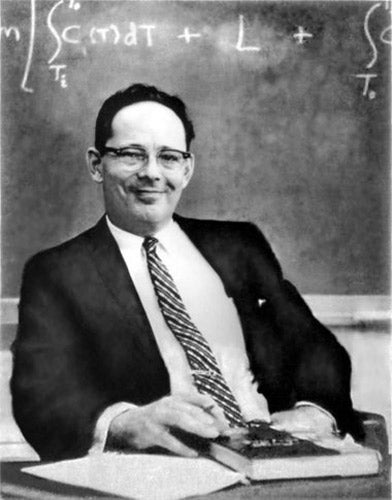Cryonics pioneer goes into the deep freeze at 92
A love of sci-fi and amazement at his medical treatment inspired him to write about resurrection after freezing

The idea of freezing human beings in the hope of bringing them back to life in decades to come has given scores of science fiction writers licence to come up with ever more unlikely storylines over the years.
Now Robert Ettinger, the man who almost single-handedly persuaded hundreds of people that the practice of cryonics was very much plausible – including his own mother and two wives – is putting his theory to the test himself, having died at the age of 92.
A physics teacher at Wayne State University, Mr Ettinger's love of sci-fi books and his amazement at the quality of his medical treatment during the Second World War inspired him to write about people being resurrected after freezing in a 1948 short story.
In the years to come he began to think about such a possibility more seriously, culminating in the the publication of his manifesto on the practice, The Prospect of Immortality in 1964.
At first it was hard to persuade anyone to invest in the idea, with another follower, Evan Cooper, writing that year: "Are we shouting in the abyss? How could 110 million go to their deaths without one at least trying for a life in the future via freezing? Where is the individualism, scientific curiosity and even eccentricity we hear so much about?"
Cryonics did not have to wait much longer for its first patient, however, with the freezing of Dr James Bedford three years later.
It was in 1976 that Mr Ettinger founded his own facility – the Cryonics Institute – to carry out more preservations. And there, in the 7000sq ft warehouse on an industrial estate in Clinton Township, Michigan, his body was on Saturday placed in liquid nitrogen at minus 196 centigrade alongside the 105 others that have so far been preserved.
There is, of course, no way of reviving these bodies with contemporary technology, but the devoted followers of Mr Ettinger are confident that continuing medical advances will one day make this possible.
His son, David Ettinger, said afterwards that his father was never bothered by the ridicule he frequently received and was a "reluctant prophet". "He did what he thought was necessary and appropriate and didn't worry much about what people thought," he said, speaking after his father's death on Saturday. "The people who are scoffers are like the people who said heavier-than-air flight won't work."
Unlike in films such as 2001: A Space Odyssey, it is illegal to freeze living people, despite the Institute stating on its website that "it would be better to cool a patient before illness causes so much physical damage that it results in death".
Death is not a term cryonicists tend to use, however. As it the Institute also tells prospective clients: "A person held in such a state is said to be a 'cryopreserved patient', because we do not regard them as being really 'dead'."
Subscribe to Independent Premium to bookmark this article
Want to bookmark your favourite articles and stories to read or reference later? Start your Independent Premium subscription today.

Join our commenting forum
Join thought-provoking conversations, follow other Independent readers and see their replies